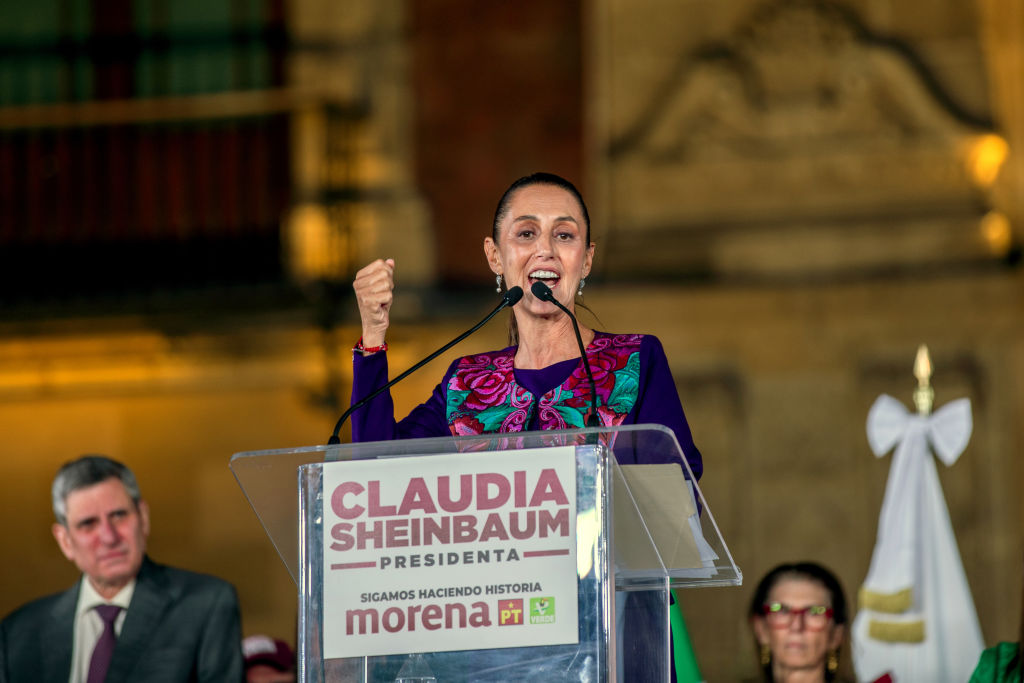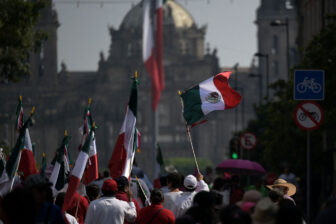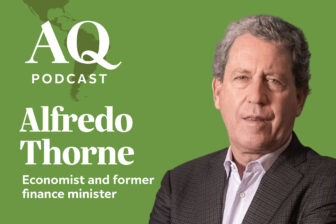MEXICO CITY — From the beginning of Mexico’s presidential campaign, Claudia Sheinbaum was frequently portrayed in the local and international media as a danger to democracy, an ineffective populist, and a puppet of her mentor, President Andrés Manuel López Obrador (AMLO).
Now that the election is over, we know she won in a landslide victory. She is expected to secure a supermajority in the Lower House and fall just a few seats short of a supermajority in the Senate, something not seen in the history of Mexico’s electoral democracy.
The risk is democratic backsliding. Mexico became an electoral democracy in 1997 as part of the so-called third wave of democracies. The question is whether Mexico’s young democracy will sometime soon look like Hungary, India, or Poland—or continue its process of consolidation.
Sheinbaum’s commitment to democratic values is called into question because she openly campaigned for some of AMLO’s controversial reforms, such as the popular election of Supreme Court judges and electoral authorities, and because she used as her campaign slogan “continuity with change,” making people wonder what change entails.
Opposition pundits deem Sheinbaum a puppet. A figure without real political power that will be instructed by AMLO to use her well-developed technical and managerial capacities to erode Mexican institutions with unprecedented speed and efficiency.
However, Sheinbaum is not AMLO. During her tenure as mayor of Mexico City, she showed significant detachment from his blueprint. Unlike AMLO, she wore a mask during the COVID-19 pandemic and worked on clean energy initiatives such as replacing oil-fueled public transportation with electric buses and building one of Latin America’s largest solar parks. Sheinbaum did not militarize the local police or employ the army to build public infrastructure.
Sheinbaum is also more competent than AMLO. Under her supervision, Mexico City’s cash-transfer programs were better allocated to the poorest than the rest of the country. Sheinbaum’s flagship social program, a scholarship for public school children, complemented federal transfers. As a result, while at the national level AMLO’s cash transfers reached fewer bottom-10% households than the previous administration, in Mexico City, Sheinbaum’s cash transfers nearly doubled their reach among families at the same income level.
A fragile supermajority
Even if we were to assume that Sheinbaum’s secret goal is to erode Mexico’s democracy, her presidency would face conditions that would make democratic backsliding much less probable.
The most important one is that, to achieve a supermajority, Morena had to design a strategy to maximize seats per vote under Mexico’s proportional representation system. That meant Morena had to be very generous in distributing seats to its two coalition allies: the PT and the Green Party. Morena’s supermajority is fragile as it depends on the loyalty of its allies. The Green Party, which allied with Morena’s opposition until 2018, is known for frequently switching coalitions to serve its interests.
Negotiations may become even more difficult for Sheinbaum because her party’s discipline will likely worsen. AMLO had served as Morena’s leader and unifying force. In critical moments of potential fragmentation, such as during the presidential primaries, he intervened to establish the rules for dividing power and healing wounds.
Sheinbaum cannot follow suit, and there have already been a few cases of extreme indiscipline. In several states, including parts of Puebla, Mexico City, Yucatán, Chihuahua, Tlaxcala, Durango, Veracruz, and the state of Mexico, militants who disapproved of Morena’s choices of candidates protested, left the party, and even ran opposition campaigns. At the federal level, two of Sheinbaum’s rivals in the primary process created an internal split among Morena’s legislators, effectively peeling away about 18% of the party’s legislators.
Furthermore, rallying people to support autocratic reforms will be much more difficult for Sheinbaum as she lacks the popularity of AMLO. When AMLO took office, he had a 76% approval rating. Immediately before the election, polls put Sheinbaum’s approval at 67%, which would be lower than the honeymoon rates of previous Mexican presidents. Her popularity may also be more fragile, as research has shown that female leaders face stronger backlashes than male leaders. Furthermore, despite AMLO’s criticism, the popularity of potentially targeted institutions like the electoral authorities and the Supreme Court has increased in polls since 2018.
Finally, Sheinbaum will also face a crucial institutional constraint: the recall referendum approved by AMLO while in office. After three years in office, anybody collecting around 3 million signatures can demand a referendum vote to potentially remove Sheinbaum from office. It is conceivable, given the low turnout for past referendums, that as few as 20 million Mexican voters would be able to successfully remove her from Los Pinos.
Extreme inequality
All of this points to an often-overlooked aspect of Mexico’s democracy: its fate may be less tied to Sheinbaum’s personality or political power, and more to its economic features, namely extreme inequality. According to some measures, Mexico is the fourth most unequal nation in the world. In such a country, when a populist leader argues that the people should organize to confront its rent-seeking elite, he is not developing a communication strategy; he is saying the truth. As long as Mexico remains a country where a small portion captures most economic opportunities, demand for populism will persist.
Liberals’ obsession with maintaining procedural democracy by constraining the executive fails to recognize that the only effective way to prevent democratic backsliding is not by forcibly excluding the angry masses from decision-making or counterbalancing their power with autonomous institutions but by addressing and reducing the very sources of their anger.
Support for democracy is driven by delivering results to its people, as the work of Daron Acemoglu, a professor at MIT, has shown. Mexico’s democracy must provide good public services and opportunities for it to be safe. So far, the country has proven resilient. However, in the future, there will be no shortcuts. Mexicans need reasons to support their democracy.
Subscribe to the Americas Quarterly Podcast on Apple, Spotify and other platforms
—
Ríos is a Mexican scholar and author specialized in inequality and social policy. She holds a Ph.D. in government from Harvard University.






